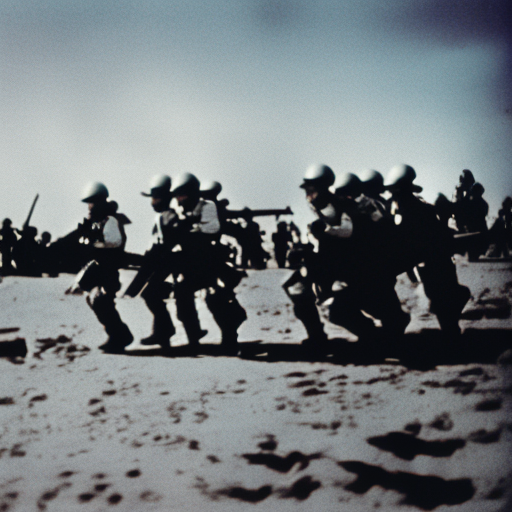Battle of Chipyong-ni: A Turning Point in the Korean War
The Battle of Chipyong-ni was a crucial engagement that took place during the Korean War from February 13 to 15, 1951. It was fought between United Nations (UN) forces, primarily composed of the U.S. Army’s 23rd Infantry Regiment, and the Chinese People’s Volunteer Army (PVA). The battle marked a significant turning point in the war, as it halted the Chinese advance and demonstrated the UN forces’ ability to successfully defend against a determined enemy.
The Background:
By early 1951, the Korean War had reached a stalemate along the 38th parallel. The Chinese PVA had joined the conflict to support North Korea, and their forces had pushed the UN forces back. The UN Command decided to establish a defensive line to prevent further Chinese advances, and Chipyong-ni, a small village in South Korea, was chosen as a key position due to its strategic location.
The Battle:
The Chinese PVA launched a massive assault on Chipyong-ni on February 13, 1951. The UN forces, led by Colonel Paul L. Freeman Jr., were heavily outnumbered but well-prepared. They had established strong defensive positions and utilized artillery and air support effectively. The battle was characterized by intense close-quarters combat, with both sides engaging in fierce hand-to-hand fighting.
Despite being outnumbered, the UN forces managed to repel wave after wave of Chinese attacks. The Chinese PVA suffered heavy casualties and failed to break through the UN defenses. The UN forces’ resilience and determination played a crucial role in their success. The battle continued for three days, with the UN forces holding their ground and inflicting significant losses on the Chinese.
The Outcome:
The Battle of Chipyong-ni ended in a decisive victory for the UN forces. The Chinese PVA was forced to retreat, and the UN forces maintained control of the village. The battle demonstrated the effectiveness of the UN forces’ defensive strategies and boosted their morale. It also marked a turning point in the Korean War, as it halted the Chinese advance and shifted the momentum in favor of the UN forces.
The Battle of Chipyong-ni had significant implications for the rest of the war. It showed that the Chinese PVA was not invincible and could be defeated with proper planning and execution. The UN forces’ success at Chipyong-ni also led to a change in strategy, with the UN Command shifting from a defensive to an offensive approach.
The Legacy:
The Battle of Chipyong-ni is remembered as one of the most significant engagements of the Korean War. It showcased the bravery and resilience of the UN forces and highlighted the importance of effective defensive tactics. The battle also demonstrated the international community’s commitment to defending South Korea against communist aggression.
The Battle of Chipyong-ni serves as a reminder of the sacrifices made by the soldiers who fought in the Korean War. It is a testament to their courage and determination in the face of overwhelming odds. The battle’s outcome had a lasting impact on the course of the war and contributed to the eventual armistice agreement in 1953.
In conclusion, the Battle of Chipyong-ni was a pivotal moment in the Korean War. The UN forces’ successful defense against the Chinese PVA halted the enemy’s advance and shifted the momentum in favor of the UN forces. The battle demonstrated the effectiveness of defensive strategies and boosted the morale of the UN forces. It remains a significant event in military history and a testament to the bravery and resilience of those who fought in the Korean War.












